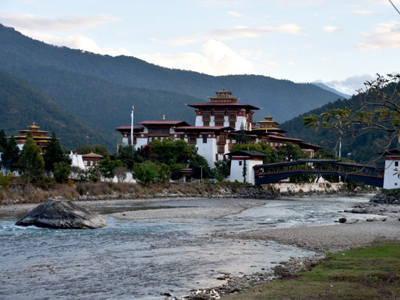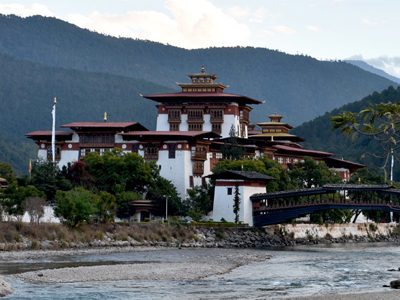Bhutan is nestled in the heart of the Himalayas. The small kingdom sandwiched between the two Asian powers – China in the north and India in the south – is a world class travel destination. The country is often known as the last Shangri La.
However, more than the painted image of Shangri La, Bhutan continues to fascinate the visitors with its unique cultural heritage. Tourists often say the country has been able to withstand the forces of rapid globalization without forgoing its benefits.
The development path the country has chosen is a blend of modernity and traditional values. The two have found a platform where they can be embraced in harmony.
One of the things Bhutan is known for in the outside world is its development philosophy: Gross National Happiness (GNH). Recently, the United Nations General Assembly accepted Bhutan’s proposal to include the pursuit of Happiness as one of the ultimate development goals of the global effort.
The idea of GNH at home is not considered as sophisticated as it is interpreted to be abroad where the concept is often criticized as utopian and idealistic. In Bhutan GNH is understood as a guiding principle of development with human values of care, communal harmony, societal integrity, and equanimity. With these all, Bhutan tries to achieve a fine balance between materialism and spiritualism.
The values are underpinned in the four broad pillars of GNH: ensuring sustainable economic development, conserving environment, preserving culture, and promoting good governance. Thanks to the development philosophy of GNH, Bhutan boasts intact and vibrant culture and tradition, pristine environment, a sustainable economy and responsible governance system.
This makes Bhutan a special travel destination you must come and see for yourself.
However, more than the painted image of Shangri La, Bhutan continues to fascinate the visitors with its unique cultural heritage. Tourists often say the country has been able to withstand the forces of rapid globalization without forgoing its benefits.
The development path the country has chosen is a blend of modernity and traditional values. The two have found a platform where they can be embraced in harmony.
One of the things Bhutan is known for in the outside world is its development philosophy: Gross National Happiness (GNH). Recently, the United Nations General Assembly accepted Bhutan’s proposal to include the pursuit of Happiness as one of the ultimate development goals of the global effort.
The idea of GNH at home is not considered as sophisticated as it is interpreted to be abroad where the concept is often criticized as utopian and idealistic. In Bhutan GNH is understood as a guiding principle of development with human values of care, communal harmony, societal integrity, and equanimity. With these all, Bhutan tries to achieve a fine balance between materialism and spiritualism.
The values are underpinned in the four broad pillars of GNH: ensuring sustainable economic development, conserving environment, preserving culture, and promoting good governance. Thanks to the development philosophy of GNH, Bhutan boasts intact and vibrant culture and tradition, pristine environment, a sustainable economy and responsible governance system.
This makes Bhutan a special travel destination you must come and see for yourself.





